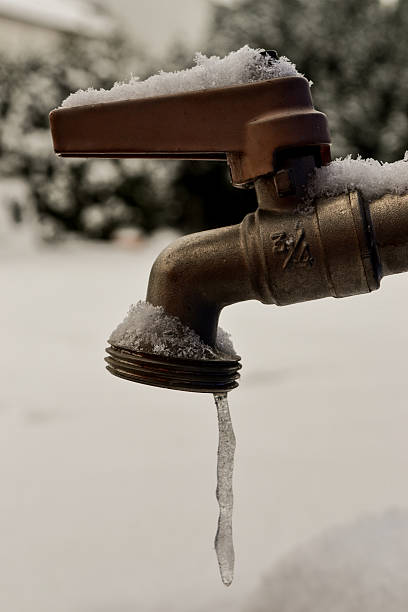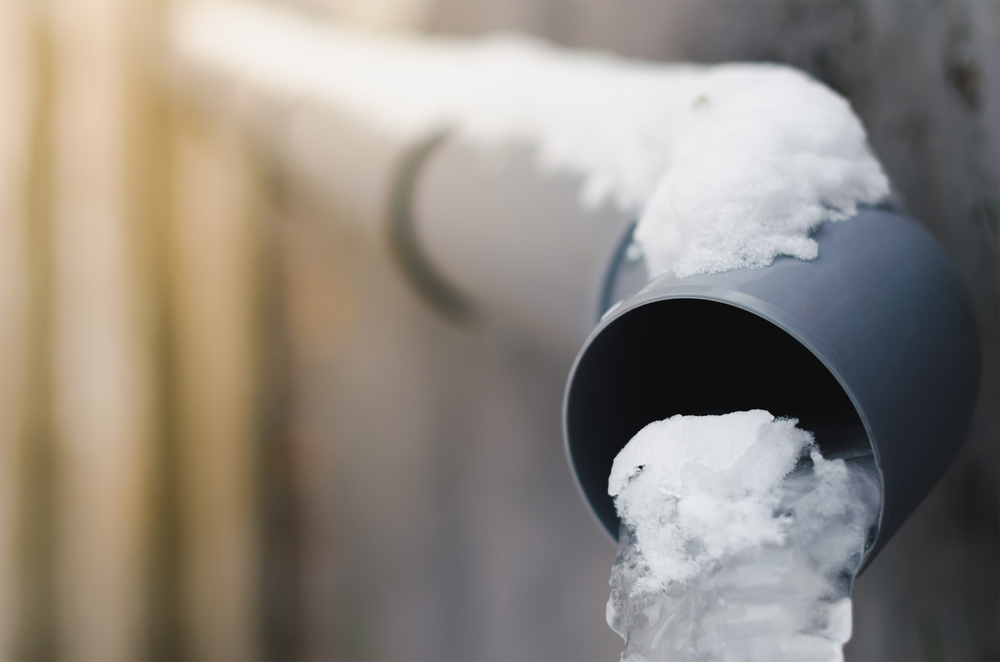Shielding Pipes from Freezing Damage: Key Approaches
Shielding Pipes from Freezing Damage: Key Approaches
Blog Article
Were you trying to locate ideas concerning How to Prevent Your Pipes From Freezing?

Cold weather can ruin your pipes, particularly by freezing pipes. Right here's exactly how to avoid it from occurring and what to do if it does.
Intro
As temperatures decrease, the danger of frozen pipes boosts, potentially causing costly repair work and water damages. Understanding exactly how to prevent icy pipelines is crucial for property owners in chilly climates.
Avoidance Tips
Insulating vulnerable pipelines
Cover pipelines in insulation sleeves or make use of warmth tape to secure them from freezing temperatures. Concentrate on pipes in unheated or external areas of the home.
Heating techniques
Keep interior spaces sufficiently warmed, especially locations with plumbing. Open cupboard doors to enable warm air to flow around pipelines under sinks.
How to determine frozen pipes
Look for reduced water circulation from faucets, uncommon smells or sounds from pipelines, and visible frost on revealed pipelines.
Long-Term Solutions
Architectural changes
Think about rerouting pipelines far from exterior wall surfaces or unheated locations. Include additional insulation to attics, basements, and crawl spaces.
Upgrading insulation
Purchase top notch insulation for pipelines, attic rooms, and walls. Proper insulation aids keep regular temperature levels and lowers the risk of icy pipelines.
Shielding Outside Plumbing
Yard hose pipes and outside faucets
Separate and drain yard hoses prior to winter season. Mount frost-proof spigots or cover outside taps with insulated caps.
Comprehending Icy Pipes
What triggers pipelines to ice up?
Pipelines freeze when subjected to temperature levels listed below 32 ° F (0 ° C) for expanded periods. As water inside the pipes freezes, it broadens, taxing the pipeline wall surfaces and possibly creating them to burst.
Risks and damages
Frozen pipes can result in water disturbances, residential or commercial property damage, and expensive repair work. Burst pipelines can flooding homes and create extensive architectural damages.
Signs of Frozen Pipes
Determining icy pipes early can avoid them from bursting.
What to Do If Your Pipes Freeze
Immediate actions to take
If you believe frozen pipes, keep taps open to alleviate pressure as the ice thaws. Make use of a hairdryer or towels soaked in hot water to thaw pipelines slowly.
Verdict
Stopping icy pipes calls for positive actions and quick actions. By comprehending the reasons, indications, and safety nets, homeowners can safeguard their pipes during cold weather.
Helpful Tips to Prevent Frozen Pipes this Winter
UNDERSTANDING THE BASICS: WHY PIPES FREEZE AND WHY IT’S A PROBLEM
Water freezing inside pipes is common during the winter months, but understanding why pipes freeze, and the potential problems it can cause is crucial in preventing such incidents. This section will delve into the basics of why pipes freeze and the associated problems that may arise.
THE SCIENCE BEHIND FROZEN PIPES
When water reaches freezing temperatures, it undergoes a physical transformation and solidifies into ice. This expansion of water as it freezes is the primary reason pipes can burst. As the water inside the pipe freezes, it expands, creating immense pressure on the walls. If the pressure becomes too great, the pipe can crack or rupture, leading to leaks and water damage.
FACTORS THAT CONTRIBUTE TO PIPE FREEZING
Low Temperatures: Extremely cold weather, especially below freezing, increases the risk of pipes freezing. Uninsulated or Poorly Insulated Pipes: Pipes located in unheated areas, such as basements, crawl spaces, or attics, are more prone to freezing. Insufficient insulation or lack of insulation altogether exacerbates the problem. Exterior Wall Exposure: Pipes running along exterior walls are susceptible to freezing as they encounter colder temperatures outside. Lack of Heating or Temperature Regulation: Inadequate heating or inconsistent temperature control in your home can contribute to frozen pipes. PROBLEMS CAUSED BY FROZEN PIPES
- Pipe Bursting: As mentioned earlier, the expansion of water as it freezes can cause pipes to burst, resulting in significant water damage.
- Water Damage: When pipes burst, it can lead to flooding and water damage to your property, including walls, ceilings, flooring, and personal belongings.
- Structural Damage: Prolonged exposure to water from burst pipes can compromise the structural integrity of your home, leading to costly repairs.
- Mold and Mildew Growth: Excess moisture from water damage can create a favorable environment for mold and mildew growth, posing health risks to occupants.
- Disrupted Water Supply: Frozen pipes can also result in a complete or partial loss of water supply until the issue is resolved.
WHY CERTAIN PIPES ARE MORE PRONE TO FREEZING
- Location: Pipes located in unheated or poorly insulated areas, such as basements, crawl spaces, attics, or exterior walls, are at higher risk of freezing.
- Exterior Pipes: Outdoor pipes, such as those used for irrigation or exposed plumbing, are particularly vulnerable to freezing as they are directly exposed to the elements.
- Supply Lines: Pipes that carry water from the main water supply into your home, including the main water line, are critical to protect as freezing in these lines can affect your entire plumbing system.
- Underground Pipes: Pipes buried underground, such as those connected to sprinkler systems or outdoor faucets, can be susceptible to freezing if not properly insulated.
https://busybusy.com/blog/helpful-tips-to-prevent-frozen-pipes-this-winter/

Hopefully you liked our piece on How To Avoid Freezing Pipes. Thank you so much for taking a few minutes to browse our blog post. So long as you enjoyed reading our page kindly make sure you remember to pass it around. Many thanks for your time. Don't forget to check our website back soon.
Maintenance Sign-Up Report this page